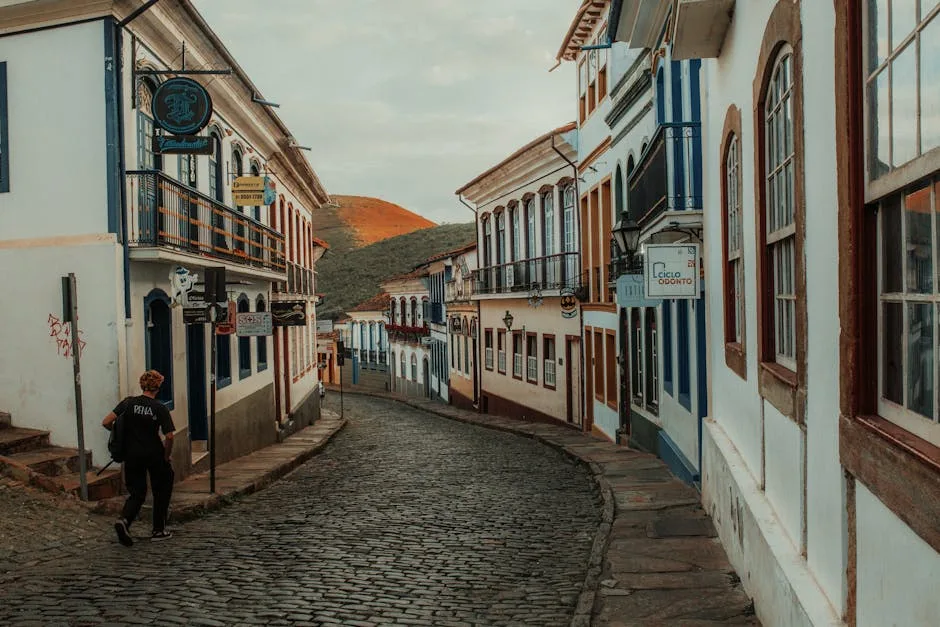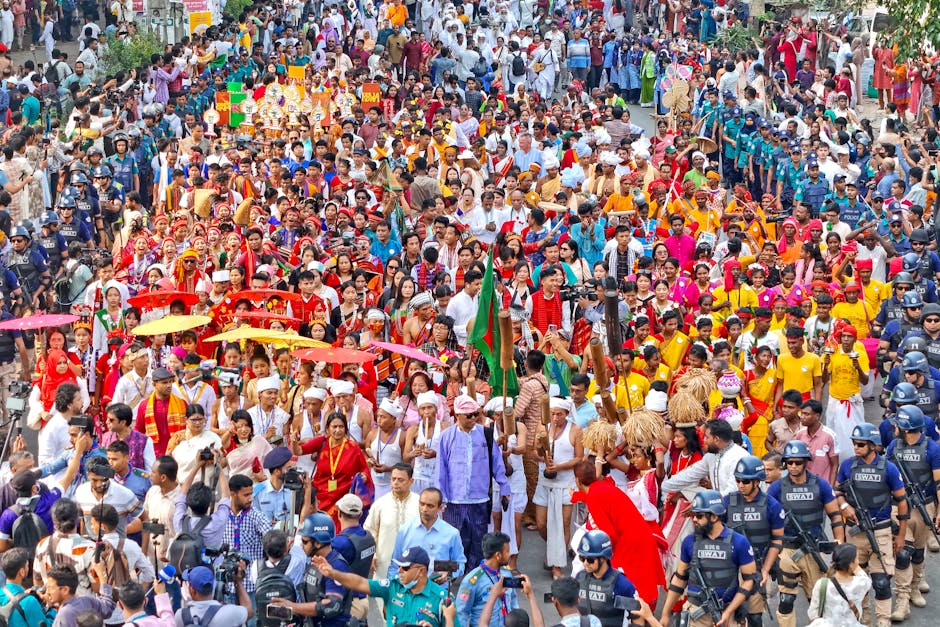A Call to Explore Brazil’s Natural Heartbeat Responsibly
Imagine a symphony of life so rich, so vibrant, it hums in your very soul. This is the essence of Brazil’s most breathtaking natural treasures: the Amazon rainforest and the Pantanal wetlands. These aren’t just places; they are living, breathing ecosystems, home to an unparalleled diversity of wildlife, ancient cultures, and landscapes that stretch the imagination. They call to the adventurer in all of us, inviting us to witness their majesty.
But with such incredible beauty comes profound responsibility. As travelers, we have a unique opportunity to not just see these wonders, but to protect them. Sustainable ecotourism offers a pathway to do exactly that – to journey with purpose, ensuring our explorations contribute positively to the environment and the communities we encounter. It’s about more than just a vacation; it’s about making a difference.
In this comprehensive guide, we’ll dive deep into what it means to explore the Amazon and Pantanal responsibly. We’ll uncover how your travel choices can safeguard these vital biomes, empower local populations, and create memories that are not only unforgettable but also truly meaningful.
Why Responsible Ecotourism is Your Best Travel Choice
In an age where the impacts of human activity on our planet are increasingly evident, the way we travel holds more weight than ever before. Traditional tourism can sometimes leave a heavy footprint, straining resources, disrupting local ways of life, and even harming fragile ecosystems. Sustainable ecotourism, however, offers a refreshing and vital alternative.
When you choose a sustainable ecotourism experience, you’re opting for a journey that prioritizes environmental conservation, supports the well-being of local communities, and fosters a deeper appreciation for the natural and cultural heritage of a destination. It’s a win-win: you get an authentic, enriching experience, and the places you visit get the protection and support they need to thrive.
This approach helps to create economic alternatives for communities that might otherwise rely on resource-exploiting industries. It funds conservation efforts, promotes research, and encourages respectful cultural exchange. Your dollars become a direct investment in the future of these incredible places, allowing them to remain pristine and vibrant for generations to come.
Unveiling the Amazon: A World of Green Wonders
The Amazon is not merely a forest; it is the largest rainforest on Earth, a colossal, interconnected web of life often called the planet’s lungs. Spanning nine South American countries, with a significant portion in Brazil, its sheer scale and biodiversity are almost unfathomable. Here, mighty rivers wind through dense canopies, home to jaguars, monkeys, sloths, vibrant macaws, and countless species yet to be discovered.
Beyond its wildlife, the Amazon is also a mosaic of indigenous cultures, each with ancient wisdom and an intimate connection to the forest. These communities are the guardians of invaluable knowledge, their traditions deeply interwoven with the health of the ecosystem.
However, this magnificent biome faces immense threats from deforestation, illegal mining, agriculture, and climate change. These pressures endanger not only its incredible biodiversity but also the livelihoods and cultures of its people. This is where responsible tourism becomes a powerful tool for change, offering sustainable economic alternatives and raising global awareness.
Mindful Exploration in the Amazon
To truly experience the Amazon responsibly means making conscious choices at every step. Start by selecting eco-lodges or riverboat operators that are genuinely committed to sustainable practices. Look for certifications, transparency in their operations, and a clear dedication to environmental protection and community engagement.
- Choosing Eco-Lodges & Operators: Prioritize those that employ local staff, source food locally, manage waste effectively, use renewable energy, and contribute a portion of their profits to conservation projects or local community development.
- Respecting Wildlife: Observe animals from a distance, never feed them, and avoid disturbing their natural habitats. Choose guides who are knowledgeable about animal behavior and prioritize their well-being.
- Engaging with Communities: Participate in cultural tours or visits only if they are genuinely community-led and benefit the local people directly. Always ask permission before taking photos of individuals, and be open to learning about their traditions and way of life.
- Low-Impact Activities: Enjoy guided jungle treks on designated trails, respectful river tours, and birdwatching expeditions. These activities allow you to immerse yourself in nature without leaving a heavy footprint.
Your visit can provide vital economic support for conservation efforts and offer indigenous communities a sustainable alternative to industries that threaten their ancestral lands. It’s about being a guest in their home, showing respect, and leaving no trace behind.
Discovering the Pantanal: Brazil’s Wetland Jewel
South of the Amazon lies another natural spectacle: the Pantanal. The world’s largest tropical wetland, it’s a vast, seasonally flooded plain that transforms throughout the year, offering unparalleled opportunities for wildlife viewing. Unlike the dense canopy of the Amazon, the Pantanal’s more open landscapes make spotting animals a truly spectacular experience.
Here, you can encounter an astonishing array of creatures: majestic jaguars lurking by the rivers, giant anteaters foraging in the grasslands, playful capybaras, powerful caimans basking in the sun, and an explosion of vibrant birdlife, including toucans, macaws, and jabiru storks. It’s a photographer’s dream and a nature lover’s paradise.
Yet, the Pantanal is also vulnerable. Agricultural expansion, cattle ranching, and climate change-induced droughts and floods threaten its delicate balance. Sustainable tourism plays a critical role here by providing economic incentives for landowners to conserve their natural habitats, rather than converting them for destructive purposes.
Responsible Adventures in the Pantanal
Experiencing the Pantanal responsibly means choosing operators who understand and respect this unique environment. Many ranches (called fazendas) in the Pantanal have transitioned from traditional cattle farming to ecotourism, offering a fantastic blend of authentic rural life and conservation efforts.
- Selecting Eco-Fazendas: Look for ranches that actively participate in conservation programs, employ local guides, maintain natural habitats, and ensure ethical interactions with wildlife. Many have dedicated areas for research and rehabilitation.
- Ethical Wildlife Observation: The Pantanal is renowned for its wildlife, especially jaguars. Choose operators who follow strict protocols for wildlife viewing, maintaining respectful distances and never baiting animals for a sighting. Guided safaris (by jeep, boat, or horseback) should prioritize the animals’ well-being over a guaranteed photo opportunity.
- Engaging Activities: Enjoy horseback riding with local cowboys (pantaneiros), photographic safaris, boat trips along the rivers, and birdwatching. These activities offer immersive experiences while minimizing environmental impact.
- Supporting Conservation Research: Some operators partner with research institutions. By choosing them, you might indirectly contribute to studies on jaguar populations, giant otters, or bird migration patterns.
Your Role as a Conscious Traveler: Key Principles
No matter which of these incredible Brazilian biomes you choose to explore, your actions as a traveler have a significant impact. By adopting a few key principles, you can ensure your journey is truly sustainable and beneficial:
Support Local Economies
Whenever possible, choose locally owned and operated businesses, from your accommodations and tour guides to restaurants and craft shops. Your money directly benefits the people who live and work in these regions, creating jobs and fostering pride in their natural heritage. Buying local crafts also provides income and helps preserve traditional skills and culture.
Minimize Your Environmental Footprint
Every small action counts. Reduce your waste by bringing a reusable water bottle and shopping bag. Conserve water and energy wherever possible, especially in remote lodges where resources might be limited. Opt for public transport or shared transfers when feasible. Use biodegradable toiletries and sunscreens to protect waterways and delicate ecosystems.
Respect Culture and Wildlife
Take the time to learn about the local customs and traditions of the communities you visit. Ask permission before taking photographs of people. When it comes to wildlife, remember you are a guest in their home. Maintain a respectful distance, avoid making loud noises, and never feed wild animals, as it can alter their natural behavior and create dependency.
Be an Informed Traveler
Research your chosen tour operators and accommodations thoroughly. Look for transparent sustainability policies, read reviews, and don’t hesitate to ask questions about their practices regarding waste management, employee welfare, and community involvement. Understanding the local environmental and social challenges will also enhance your appreciation of the efforts being made towards sustainability.
Selecting Your Eco-Friendly Operator: A Checklist
Choosing the right tour operator or lodge is paramount to a sustainable ecotourism experience. Don’t just book the cheapest or most visually appealing option; scrutinize their credentials and practices. Here’s a checklist to guide your decision:
Certifications & Awards
While not all responsible operators will have international certifications (especially smaller, local ones), look for signs of commitment. Recognizable eco-labels like Green Globe, Rainforest Alliance, or local Brazilian certifications (e.g., those from ABNT, the Brazilian Association of Technical Standards) can indicate a vetted commitment to sustainability. Even without formal certification, clear statements of environmental policy and social responsibility on their website are a good sign.
Community Engagement
Does the operator actively involve and benefit local communities and indigenous groups? Do they provide fair wages, training, and employment opportunities for local residents? Do they purchase goods and services from local suppliers? Genuine community engagement is a cornerstone of true ecotourism.
Conservation Initiatives
Beyond simply avoiding harm, does the operator actively contribute to conservation? This could include involvement in reforestation projects, wildlife monitoring, anti-poaching efforts, or research partnerships. Ask if a portion of your tour cost goes directly towards these initiatives.
Small Group Sizes & Expert Guides
Smaller group sizes generally reduce environmental impact and allow for more intimate, respectful interactions with nature and culture. Ensure guides are locally knowledgeable, highly trained in responsible tourism practices, and genuinely passionate about conservation and the local environment. They should be able to educate you on flora, fauna, and local customs.
Preparing for Your Responsible Journey
Beyond choosing the right operators, your personal preparation can significantly enhance your sustainable travel efforts. A little foresight goes a long way:
Pack Smart, Pack Light
- Reusables: Bring your own reusable water bottle, coffee cup, and shopping bag to minimize single-use plastics.
- Eco-friendly toiletries: Opt for biodegradable soaps, shampoos, and sunscreens to protect sensitive aquatic ecosystems.
- Appropriate clothing: Lightweight, breathable, quick-drying clothing in neutral colors (to blend with nature and not attract insects) is ideal. Long sleeves and pants offer protection from sun and insects, reducing the need for chemical repellents.
- Insect Repellent: Choose DEET-free options where possible, especially if you plan to swim in rivers or use trails.
- First-aid kit: A basic kit for minor ailments will prevent the need for purchasing items locally that might not be sustainably produced or packaged.
Health & Safety
Consult your doctor well in advance about necessary vaccinations for the Amazon and Pantanal regions (e.g., Yellow Fever). Consider travel insurance, and be prepared for variable weather conditions. Always follow your guide’s instructions, especially when in close proximity to wildlife.
Learning Basic Portuguese
Even a few basic phrases in Portuguese can greatly enhance your interactions with locals, showing respect for their culture and making your journey more rewarding. Simple greetings and thank yous go a long way!
Embarking on a sustainable ecotourism adventure in Brazil’s Amazon and Pantanal isn’t just a trip; it’s a transformative experience. It’s an opportunity to connect deeply with nature, learn from ancient cultures, and become an active participant in protecting some of the world’s most vital ecosystems. By choosing to travel responsibly, you contribute to a future where these natural wonders can continue to thrive, inspiring awe and wonder for generations to come. Your journey matters, and by making conscious choices, you help ensure that the heartbeat of Brazil’s wild places continues to beat strong.





